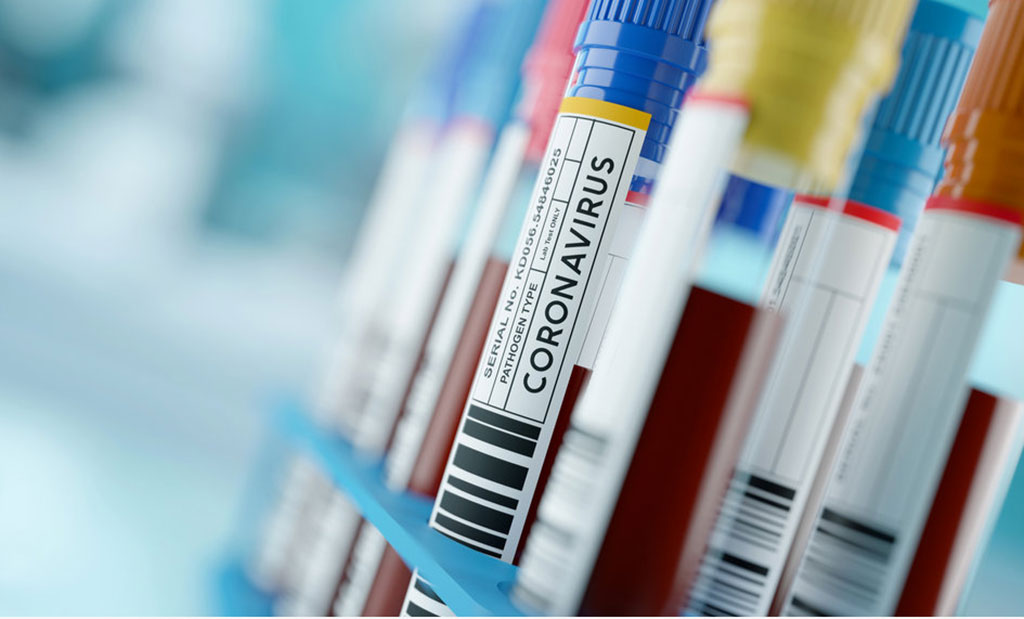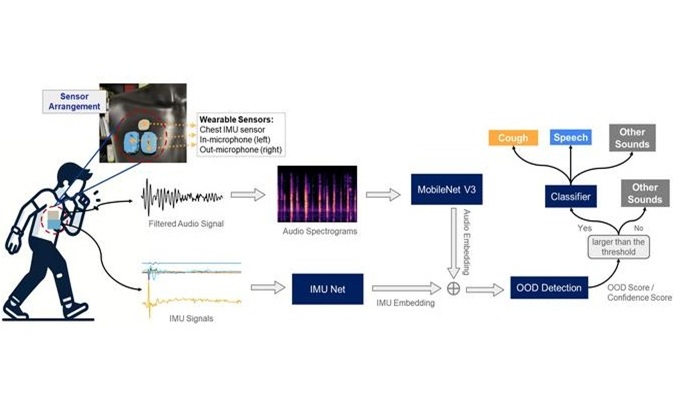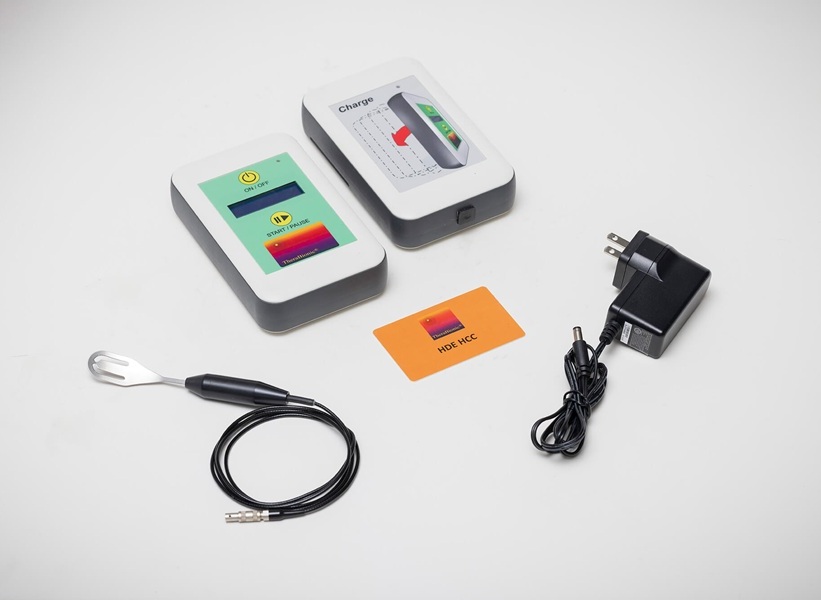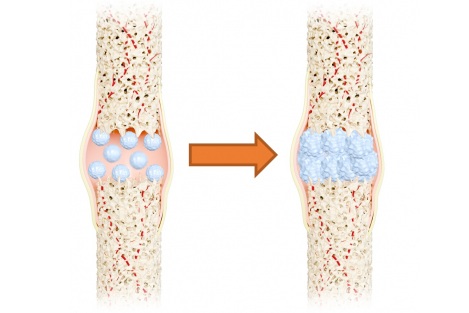New ELISA-Based COVID-19 Test Detects and Ranks SARS-CoV-2 Neutralizing Antibodies by Their Potency
|
By HospiMedica International staff writers Posted on 04 Dec 2020 |

Illustration
A new enzyme-linked immunosorbent assay (ELISA)-based COVID-19 diagnostic test detects and ranks SARS-CoV-2 neutralizing antibodies by their potency in a simple and relatively short test time.
The test developed internally by AXIM Biotechnologies, Inc. (San Diego, CA, USA) aims to fulfill the need to know the levels of neutralizing antibodies in longitudinal studies of vaccine response in the post-vaccine COVID-19 fight. AXIM’s own reagents and proteins are used in the test kits. The company has completed live SARS-CoV-2 virus microneutralization tests at a Biosafety Level (BSL-3) laboratory with samples from COVID-19 patients to validate diagnostic tests per current Food and Drug Administration (FDA) guidelines. AXIM intends to file its third Emergency Use Authorization (EUA) with the FDA soon.
“From the onset of the pandemic, our scientists have dedicated themselves to creating solutions focused on neutralizing antibody detection. Since no one knows how long vaccines will provide immunity, we continue our development of neutralizing antibody COVID-19 tests,” said AXIM Biotech CEO John W. Huemoeller II. “With the addition of our ELISA-based neutralizing antibody diagnostic test, AXIM hopes to help simplify the testing process for determining a vaccine’s efficacy through clinics across the world.”
“Unlike few currently available ELISA, our uniquely designed assay offers a simple and relatively short test time to detect and rank SARS-CoV-2 neutralizing antibodies by their potency. We believe it will help to evaluate the immune status of patients who recovered from COVID-19 or to monitor immunization efficiency more accurately than other ELISAs,” said AXIM Biotech Chief Technology Officer Alim Seit-Nebi, Ph.D.
Related Links:
AXIM Biotechnologies, Inc.
The test developed internally by AXIM Biotechnologies, Inc. (San Diego, CA, USA) aims to fulfill the need to know the levels of neutralizing antibodies in longitudinal studies of vaccine response in the post-vaccine COVID-19 fight. AXIM’s own reagents and proteins are used in the test kits. The company has completed live SARS-CoV-2 virus microneutralization tests at a Biosafety Level (BSL-3) laboratory with samples from COVID-19 patients to validate diagnostic tests per current Food and Drug Administration (FDA) guidelines. AXIM intends to file its third Emergency Use Authorization (EUA) with the FDA soon.
“From the onset of the pandemic, our scientists have dedicated themselves to creating solutions focused on neutralizing antibody detection. Since no one knows how long vaccines will provide immunity, we continue our development of neutralizing antibody COVID-19 tests,” said AXIM Biotech CEO John W. Huemoeller II. “With the addition of our ELISA-based neutralizing antibody diagnostic test, AXIM hopes to help simplify the testing process for determining a vaccine’s efficacy through clinics across the world.”
“Unlike few currently available ELISA, our uniquely designed assay offers a simple and relatively short test time to detect and rank SARS-CoV-2 neutralizing antibodies by their potency. We believe it will help to evaluate the immune status of patients who recovered from COVID-19 or to monitor immunization efficiency more accurately than other ELISAs,” said AXIM Biotech Chief Technology Officer Alim Seit-Nebi, Ph.D.
Related Links:
AXIM Biotechnologies, Inc.
Latest COVID-19 News
- Low-Cost System Detects SARS-CoV-2 Virus in Hospital Air Using High-Tech Bubbles
- World's First Inhalable COVID-19 Vaccine Approved in China
- COVID-19 Vaccine Patch Fights SARS-CoV-2 Variants Better than Needles
- Blood Viscosity Testing Can Predict Risk of Death in Hospitalized COVID-19 Patients
- ‘Covid Computer’ Uses AI to Detect COVID-19 from Chest CT Scans
- MRI Lung-Imaging Technique Shows Cause of Long-COVID Symptoms
- Chest CT Scans of COVID-19 Patients Could Help Distinguish Between SARS-CoV-2 Variants
- Specialized MRI Detects Lung Abnormalities in Non-Hospitalized Long COVID Patients
- AI Algorithm Identifies Hospitalized Patients at Highest Risk of Dying From COVID-19
- Sweat Sensor Detects Key Biomarkers That Provide Early Warning of COVID-19 and Flu
- Study Assesses Impact of COVID-19 on Ventilation/Perfusion Scintigraphy
- CT Imaging Study Finds Vaccination Reduces Risk of COVID-19 Associated Pulmonary Embolism
- Third Day in Hospital a ‘Tipping Point’ in Severity of COVID-19 Pneumonia
- Longer Interval Between COVID-19 Vaccines Generates Up to Nine Times as Many Antibodies
- AI Model for Monitoring COVID-19 Predicts Mortality Within First 30 Days of Admission
- AI Predicts COVID Prognosis at Near-Expert Level Based Off CT Scans
Channels
Critical Care
view channel
Origami Robots to Deliver Medicine Less Invasively and More Effectively
Delivering medicine to ulcers or other internal sites often requires invasive procedures that can disrupt surrounding tissues and lengthen recovery times. Traditional magnetic actuators used in soft robotics... Read more
Improved Cough-Detection Technology Aids Health Monitoring
Coughing serves as an important biomarker for tracking a variety of conditions and can help monitor the progress of respiratory diseases or predict when someone’s asthma is being exacerbated.... Read moreSurgical Techniques
view channel
Novel Glue Prevents Complications After Breast Cancer Surgery
Seroma and prolonged lymphorrhea are among the most common complications following axillary lymphadenectomy in breast cancer patients. These postoperative issues can delay recovery and postpone the start... Read more
Breakthrough Brain Implant Enables Safer and More Precise Drug Delivery
Delivering medication directly to specific regions of the brain has long been a major challenge in treating neurological disorders. Current implants and infusion systems typically reach only one or two... Read morePatient Care
view channel
Revolutionary Automatic IV-Line Flushing Device to Enhance Infusion Care
More than 80% of in-hospital patients receive intravenous (IV) therapy. Every dose of IV medicine delivered in a small volume (<250 mL) infusion bag should be followed by subsequent flushing to ensure... Read more
VR Training Tool Combats Contamination of Portable Medical Equipment
Healthcare-associated infections (HAIs) impact one in every 31 patients, cause nearly 100,000 deaths each year, and cost USD 28.4 billion in direct medical expenses. Notably, up to 75% of these infections... Read more
Portable Biosensor Platform to Reduce Hospital-Acquired Infections
Approximately 4 million patients in the European Union acquire healthcare-associated infections (HAIs) or nosocomial infections each year, with around 37,000 deaths directly resulting from these infections,... Read moreFirst-Of-Its-Kind Portable Germicidal Light Technology Disinfects High-Touch Clinical Surfaces in Seconds
Reducing healthcare-acquired infections (HAIs) remains a pressing issue within global healthcare systems. In the United States alone, 1.7 million patients contract HAIs annually, leading to approximately... Read moreHealth IT
view channel
Printable Molecule-Selective Nanoparticles Enable Mass Production of Wearable Biosensors
The future of medicine is likely to focus on the personalization of healthcare—understanding exactly what an individual requires and delivering the appropriate combination of nutrients, metabolites, and... Read moreBusiness
view channel
Philips and Masimo Partner to Advance Patient Monitoring Measurement Technologies
Royal Philips (Amsterdam, Netherlands) and Masimo (Irvine, California, USA) have renewed their multi-year strategic collaboration, combining Philips’ expertise in patient monitoring with Masimo’s noninvasive... Read more
B. Braun Acquires Digital Microsurgery Company True Digital Surgery
The high-end microsurgery market in neurosurgery, spine, and ENT is undergoing a significant transformation. Traditional analog microscopes are giving way to digital exoscopes, which provide improved visualization,... Read more
CMEF 2025 to Promote Holistic and High-Quality Development of Medical and Health Industry
The 92nd China International Medical Equipment Fair (CMEF 2025) Autumn Exhibition is scheduled to be held from September 26 to 29 at the China Import and Export Fair Complex (Canton Fair Complex) in Guangzhou.... Read more










.jpg)






